
Onitsha: The Pulse of Eastern Nigeria
Onitsha is a bustling city located on the eastern bank of the Niger River in Nigeria. Known for its vibrant markets, Onitsha is a commercial hub that attracts traders and tourists alike. The iconic Onitsha Main Market is one of the largest markets in West Africa, offering a wide array of goods from textiles to electronics. Visitors can immerse themselves in the vibrant atmosphere, haggling for bargains and soaking in the local culture. Beyond its markets, Onitsha is rich in history and culture. The city is home to several historical landmarks, including the Obi of Onitsha's Palace, a symbol of the traditional leadership that still holds sway. The palace grounds and its surroundings offer a glimpse into the customs and traditions of the Igbo people. Additionally, the Niger Bridge, a notable engineering feat, connects Onitsha to Asaba and serves as a critical transport link in Nigeria. Nature lovers will enjoy the scenic views of the Niger River, which provides opportunities for boat rides and picnics along its banks. The river's serene beauty contrasts with the city's bustling energy, offering a peaceful retreat for reflection and relaxation. Whether you're exploring its bustling markets, delving into its rich cultural heritage, or enjoying the natural beauty of the Niger River, Onitsha promises a unique and memorable experience for every traveler.
Local tips in Onitsha
- Visit Onitsha Main Market early in the morning to avoid the crowds and get the best deals.
- Carry cash, as many vendors in the markets do not accept credit or debit cards.
- Respect local customs when visiting the Obi of Onitsha's Palace; dress modestly and seek permission before taking photographs.
- Hire a local guide to navigate the markets and historical sites for a more enriching experience.
- Stay hydrated and wear comfortable clothing, especially during the hot months.
Onitsha: The Pulse of Eastern Nigeria
Onitsha is a bustling city located on the eastern bank of the Niger River in Nigeria. Known for its vibrant markets, Onitsha is a commercial hub that attracts traders and tourists alike. The iconic Onitsha Main Market is one of the largest markets in West Africa, offering a wide array of goods from textiles to electronics. Visitors can immerse themselves in the vibrant atmosphere, haggling for bargains and soaking in the local culture. Beyond its markets, Onitsha is rich in history and culture. The city is home to several historical landmarks, including the Obi of Onitsha's Palace, a symbol of the traditional leadership that still holds sway. The palace grounds and its surroundings offer a glimpse into the customs and traditions of the Igbo people. Additionally, the Niger Bridge, a notable engineering feat, connects Onitsha to Asaba and serves as a critical transport link in Nigeria. Nature lovers will enjoy the scenic views of the Niger River, which provides opportunities for boat rides and picnics along its banks. The river's serene beauty contrasts with the city's bustling energy, offering a peaceful retreat for reflection and relaxation. Whether you're exploring its bustling markets, delving into its rich cultural heritage, or enjoying the natural beauty of the Niger River, Onitsha promises a unique and memorable experience for every traveler.
When is the best time to go to Onitsha?
Iconic landmarks you can’t miss
MR KC STORES LTD
Discover shopping, culture, and local cuisine at MR KC Stores Ltd, Onitsha's vibrant market hub for a unique Nigerian experience.
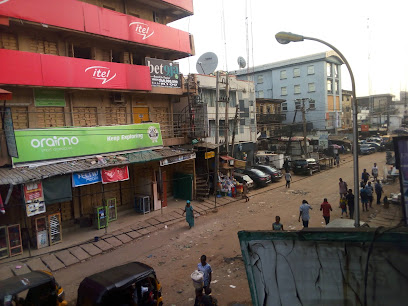
Shoprite, Onitsha Mall
Discover a vibrant shopping experience at Shoprite Onitsha Mall, where modern retail meets local culture in the heart of Anambra.
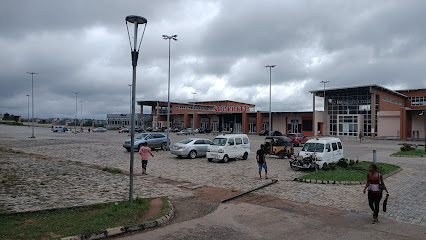
Onitsha Bridge
Discover the beauty of Onitsha Bridge, an architectural gem in Anambra, Nigeria, offering stunning views and a peaceful retreat for all travelers.
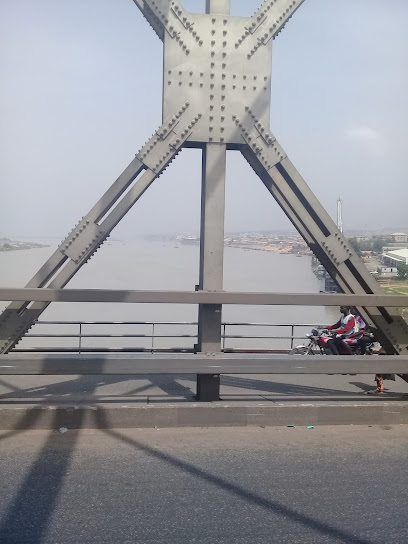
Dolly Hills Hotel
Discover comfort and culture at Dolly Hills Hotel, a serene escape in the heart of bustling Onitsha, Nigeria.
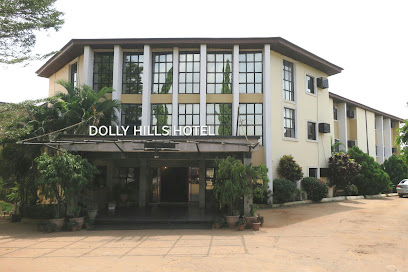
Crunchies Fried Chicken
Discover the delectable flavors of Crunchies Fried Chicken in Onitsha: a must-visit fast-food spot for tourists craving local specialties and quick meals.
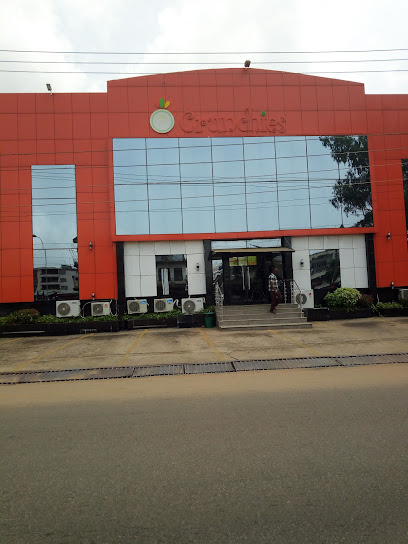
Chillis Fast-food
Experience the vibrant flavors of Onitsha at Chillis Fast-food, your go-to spot for delicious fast food and catering services.

Zik's Mausoleum
Explore Zik's Mausoleum in Onitsha, a heritage museum dedicated to Nigeria's first President and an essential site for understanding the nation's rich history.
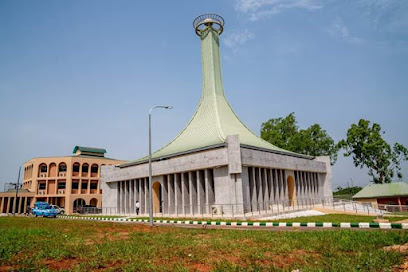
Godwinononaenyi fabrics store.
Explore the vibrant Godwinononaenyi Fabrics Store in Onitsha, Nigeria, where exquisite textiles and rich cultural heritage come together for an unforgettable shopping experience.
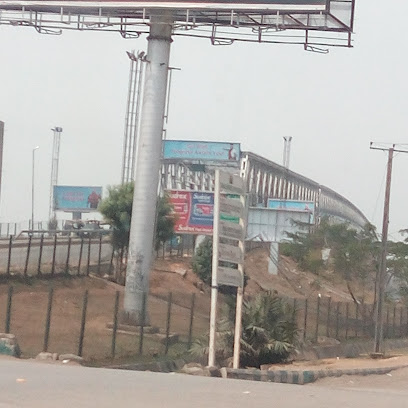
Ogbunike Cave
Explore the breathtaking Ogbunike Cave—an enchanting blend of natural beauty and rich cultural heritage in Anambra, Nigeria.
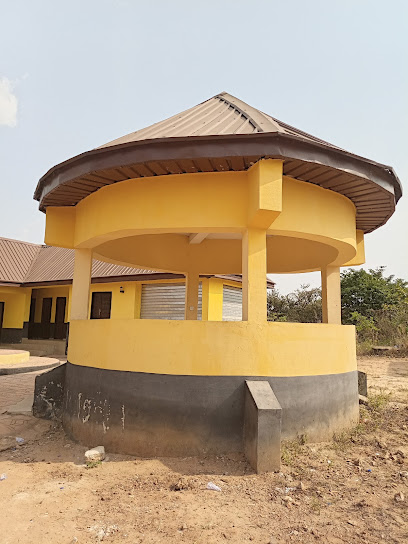
Saint Mary's Catholic Church
Discover the spiritual essence of Onitsha at Saint Mary's Catholic Church, a beautiful landmark showcasing faith, community, and architectural splendor.
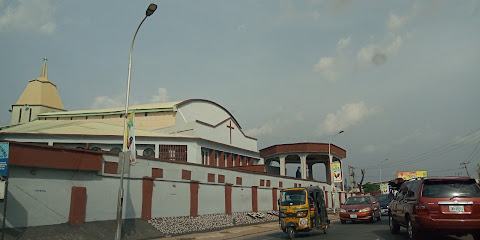
Family Play Park
Discover endless fun and adventure at Family Play Park, the ultimate children's amusement center in Onitsha, filled with thrilling rides and activities.

Banana Island Hotel and Suites, Awada
Discover comfort and luxury at Banana Island Hotel and Suites in Awada, the ideal destination for tourists seeking culture and relaxation in Anambra.
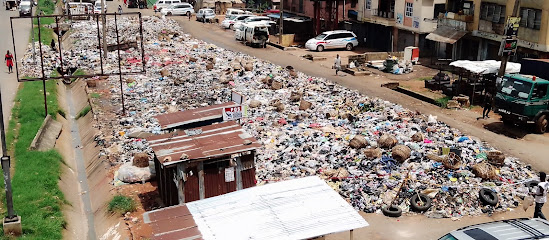
TRACAS PARK
Experience the serenity of TRACAS PARK in Onitsha, a perfect blend of nature and relaxation for every traveler.
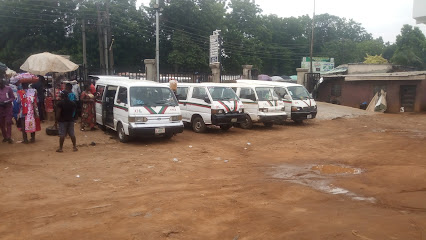
Dennis Memorial Grammar School
Discover the rich history and academic excellence of Dennis Memorial Grammar School in Onitsha, a landmark of educational heritage in Nigeria.
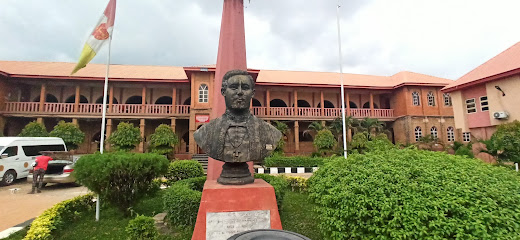
Gold Rock & Lounge
Discover the vibrant atmosphere of Gold Rock & Lounge in Woliwo Layout, Onitsha, a perfect blend of comfort, entertainment, and local culture.
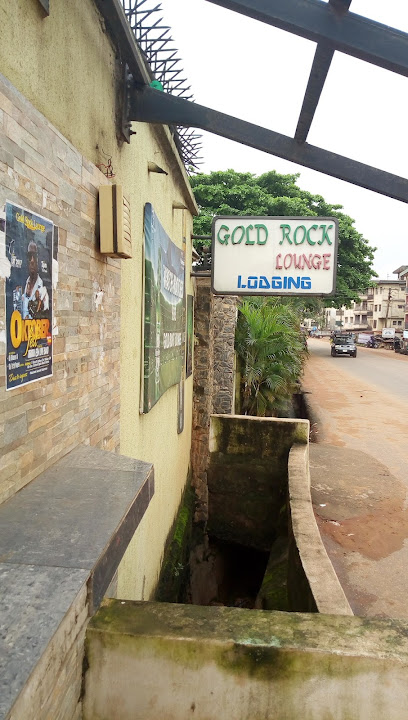
Unmissable attractions to see
Nelson Mandela Gardens and Resort
Experience the serene beauty of Nelson Mandela Gardens and Resort in Asaba, a perfect escape for nature lovers and relaxation seekers alike.
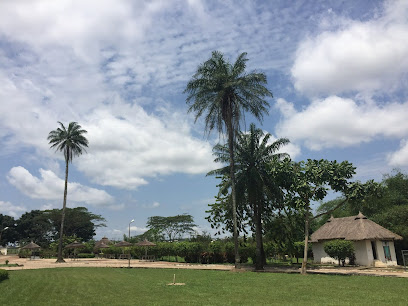
Zik's Mausoleum
Explore Zik's Mausoleum, a heritage museum in Onitsha, and uncover the legacy of Nigeria's first president, Dr. Nnamdi Azikiwe.
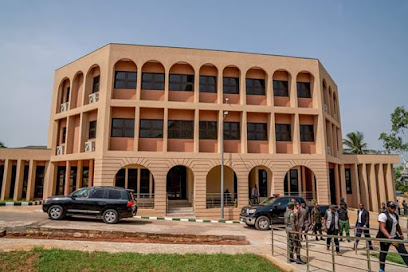
Onitsha South Park
Explore the lush landscapes and peaceful ambiance of Onitsha South Park, a tranquil escape in the heart of the city for tourists seeking relaxation and nature.
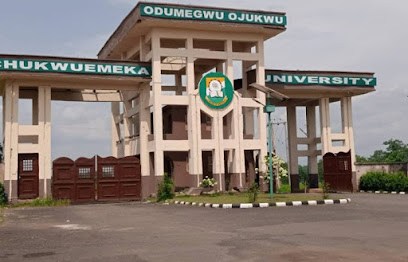
DELTA STATE LEISURE PARK AND FILM VILLAGE
Experience the perfect blend of nature and cinema at Delta State Leisure Park and Film Village, a unique destination in Asaba, Nigeria.
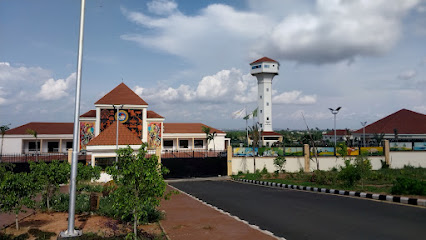
City Park
Discover the serenity of City Park in Onitsha, a perfect blend of nature and relaxation in the heart of the city.
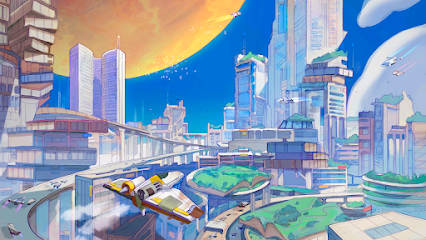
Vinmilan Amusement Park, Asaba
Discover endless fun and excitement at Vinmilan Amusement Park in Asaba, where thrilling rides and family-friendly attractions await every visitor.
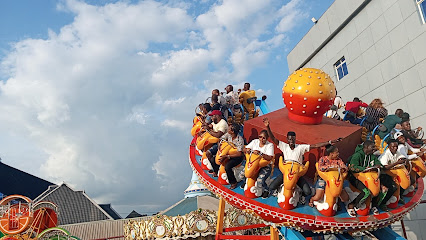
TRACAS PARK
Discover tranquility at Tracas Park, Onitsha's serene retreat featuring lush landscapes, picnic areas, and recreational spaces for all ages.
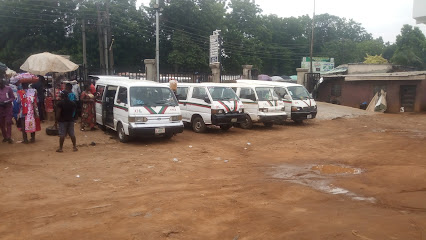
Umuoji Area
Explore the captivating Umuoji Area Park in Anambra, Nigeria—a serene escape perfect for relaxation, community gatherings, and nature appreciation.
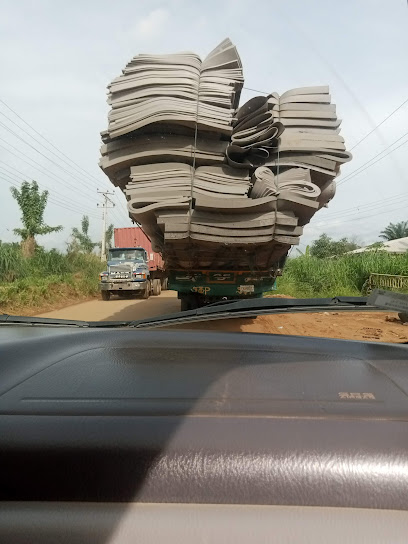
Ogbaukwu cave and waterfall
Explore the stunning Ogbaukwu Cave and Waterfall in Anambra, a perfect blend of natural beauty and cultural heritage.
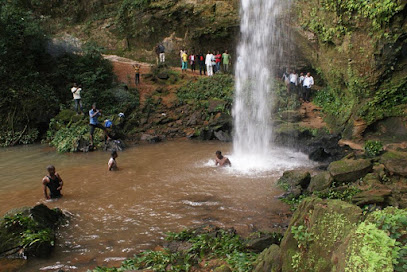
Miriam Babangida Leisure Park
Explore the natural beauty and recreational activities at Miriam Babangida Leisure Park, an ideal destination for tourists in Asaba, Delta State.
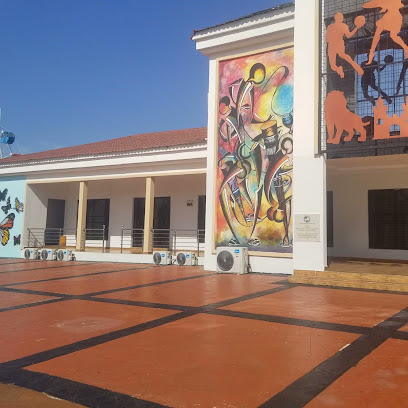
Peacemass Park Tazan
Explore Peacemass Park Tazan in Onitsha - A tranquil park blending lush greenery with local culture and community events for a refreshing getaway.
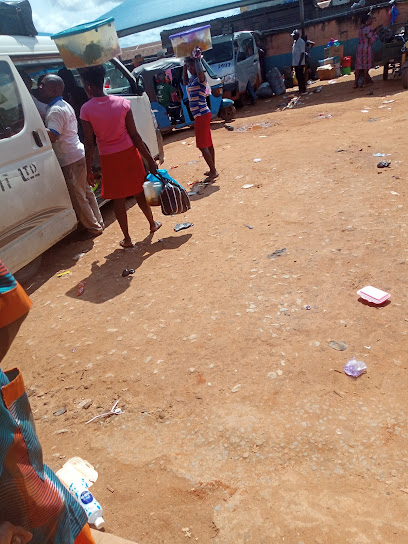
Eze Okpoko 1 Mausoleum
Explore the Eze Okpoko 1 Mausoleum, a serene memorial park in Oba, Anambra, celebrating the rich heritage and legacy of the Igbo people.
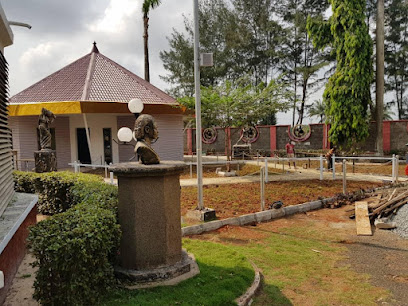
Ụbụ Ụkpọr
Discover the vibrant culture and rich heritage of Ọbụ́ Ọkpụrụ, a captivating tourist attraction in Anambra, Nigeria, where tradition meets modernity.
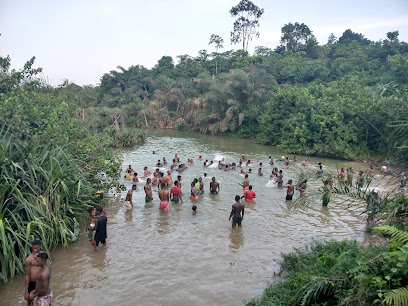
GOOCHY COMMUNICATION LED
Explore the Goochy Communication LED Garden in Nnewi, where nature meets modern art in a breathtaking display of beauty and tranquility.
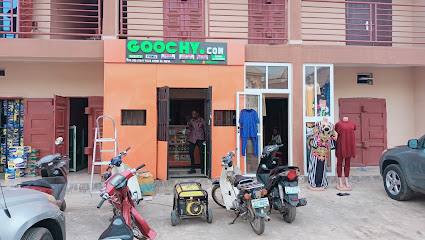
AGU EKE FOREST AGULU
Discover Agu Eke Forest Agulu, a serene natural sanctuary in Anambra, Nigeria, perfect for nature lovers and adventure seekers alike.

Essential places to dine
Crunchies Plus Concept
Discover delightful fast food and breakfast options at Crunchies Plus Concept in Nkpor – where local flavors meet convenience.
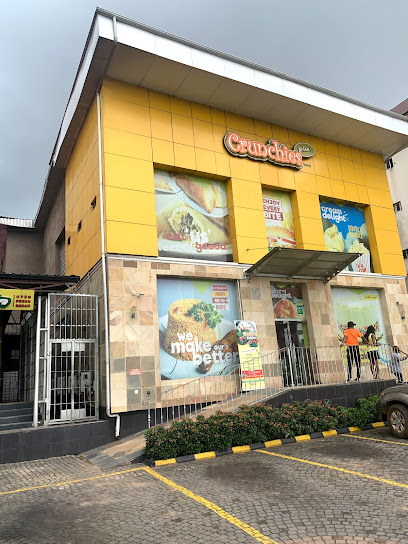
Crunchies Fried Chicken
Experience the vibrant flavors of Nigeria at Crunchies Fried Chicken - a must-visit destination for fast food lovers in Onitsha.
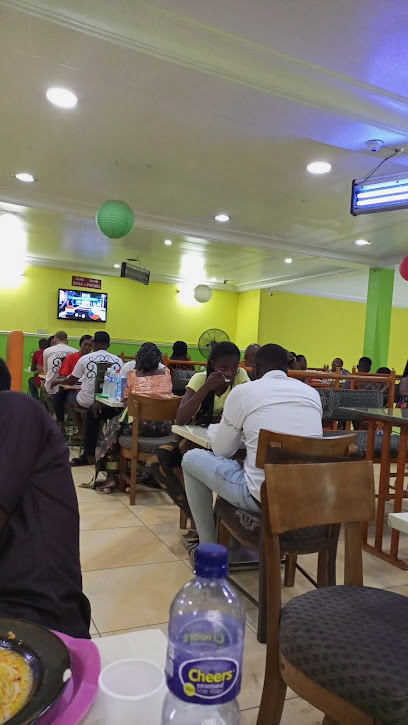
Chillis Fast-food
Experience delectable fast food and breakfast delights at Chillis Fast-food in Onitsha – where flavor meets convenience.
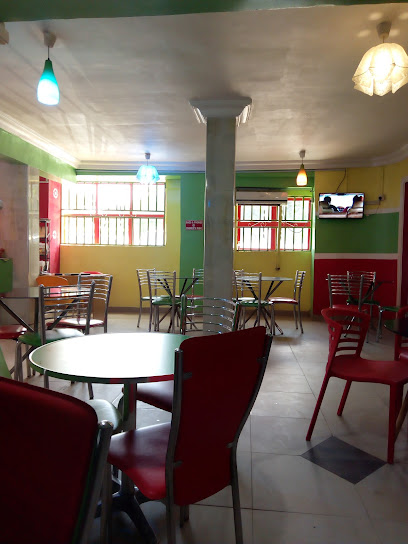
Mr. Bigg's - Onitsha
Experience the flavors of Nigeria at Mr. Bigg's in Onitsha – where delicious meals meet friendly service.

Five Star Food
Discover the taste of Nigeria at Five Star Food in Nkpor - where fast food meets authentic African cuisine in a welcoming atmosphere.
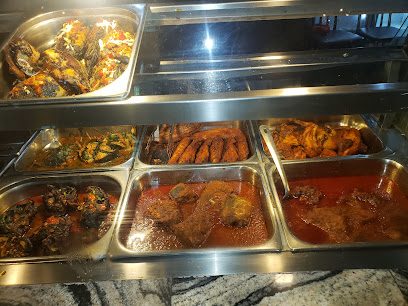
Nibbles
Discover Nibbles in Onitsha: A delightful restaurant offering diverse cuisines in a vibrant setting perfect for any occasion.

Chilis Food
Experience delectable fast food and hearty breakfasts at Chili's Food in Onitsha – perfect for travelers craving flavor.
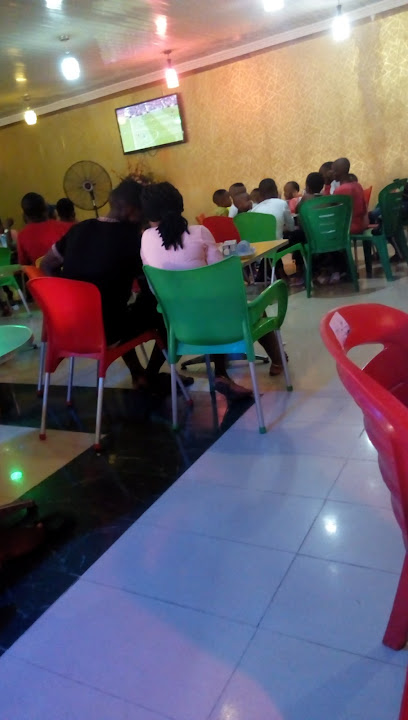
Chillis food
Discover delicious fast food delights at Chillis Food in Onitsha – where flavor meets convenience!
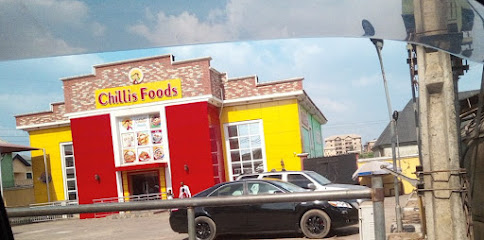
ORINGO LOUNGE & BAR
Discover Oringo Lounge & Bar: A Culinary Gem in Onitsha Offering Grilled Delights and Lively Entertainment.
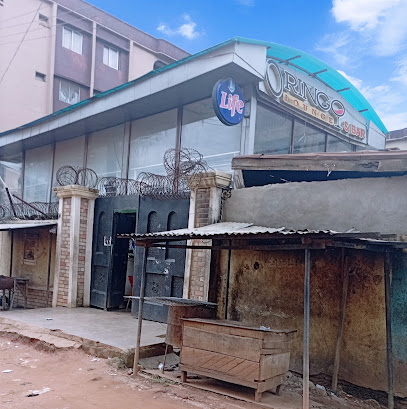
Pizza jungle
Discover authentic flavors at Pizza Jungle in Onitsha—where every slice is a taste of culinary bliss!
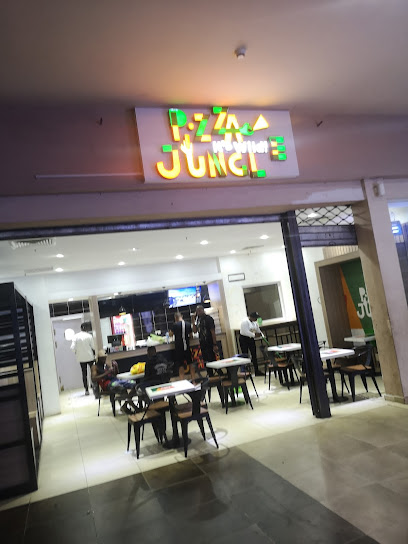
Glosuprises_n_events
Discover culinary excellence and exceptional event planning at Glosuprises_n_events in Onitsha – where every meal is a celebration.

Nwaanyi Akokwa chyboy
Experience authentic Nigerian cuisine at Nwaanyi Akokwa Chyboy in Onitsha – where flavors meet culture!

FLAVOUR CITY CREAMERY & FOODS
Indulge in delicious fast food delights at Flavour City Creamery & Foods - where taste meets quality in Onitsha.
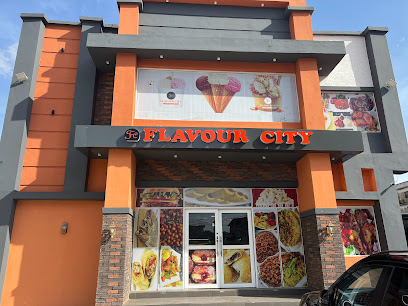
Madam 12 Restaurant
Discover the vibrant flavors of Onitsha at Madam 12 Restaurant, your go-to spot for delicious breakfasts and warm hospitality.
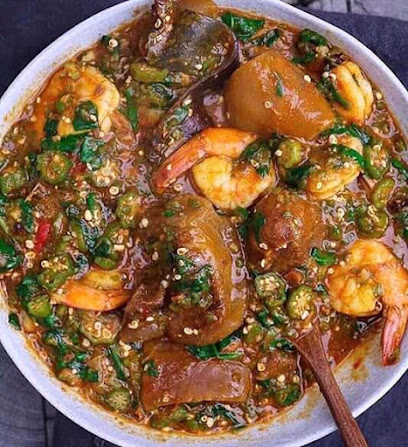
Ada Jesus Resturant
Discover authentic Nigerian flavors at Ada Jesus Restaurant in Onitsha's lively Fegge district – a must-visit culinary experience for every tourist.
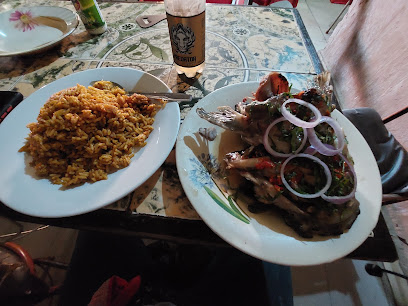
Markets, malls and hidden boutiques
MR KC STORES LTD
Explore the heart of Onitsha at MR KC Stores Ltd, a vibrant market offering unique jewelry, crafts, and local delicacies in a lively atmosphere.
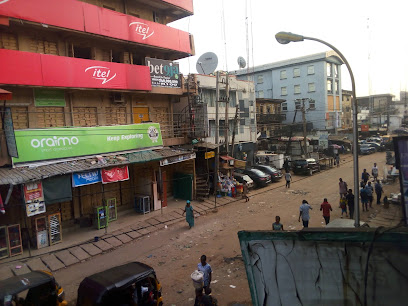
Shoprite, Onitsha Mall
Discover a vibrant shopping paradise at Shoprite Onitsha Mall, where diverse retail, dining, and entertainment options await in Anambra, Nigeria.
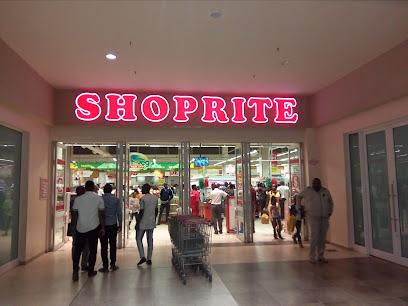
Pacific Complex
Explore Pacific Complex in Onitsha - A shopping paradise with diverse stores, delicious dining options, and vibrant local culture.
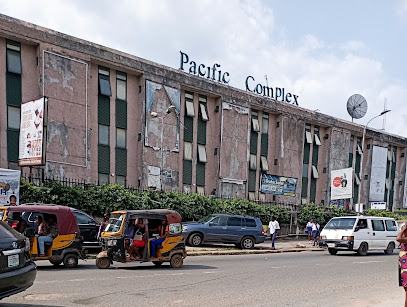
Neche fashion world
Explore the vibrant world of fashion at Neche Fashion World, your go-to destination for trendy accessories in Onitsha.

City of God Plaza
Explore City of God Plaza – a vibrant marketplace in Onitsha, where tradition meets modern fashion, and local culture shines through every purchase.

UC fashion world
Explore the vibrant fashion scene at UC Fashion World in Onitsha, where diverse styles and affordable prices await every shopper.
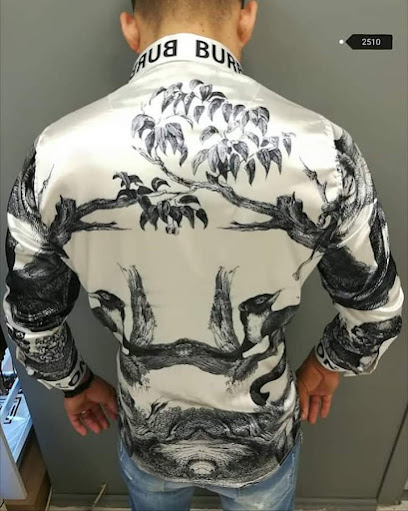
Kencliq Exotic Collections
Explore the vibrant fashion scene at Kencliq Exotic Collections, a must-visit clothing store in Onitsha, Nigeria, for unique and high-quality apparel.

Onitsha Online Shops
Discover the colorful world of Onitsha Online Shops, where vibrant culture meets diverse shopping experiences in the heart of Nigeria.

Alex Best Nigeria Enterprise
Explore the vibrant offerings at Alex Best Nigeria Enterprise, the ideal destination for unique local goods and a taste of Nigerian culture.
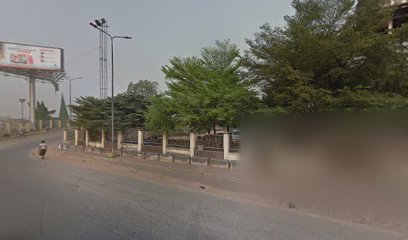
Excuisite Boutique
Explore Excuisite Boutique in Onitsha for unique fashion and authentic local crafts, capturing the essence of Nigerian culture in every piece.

Ucheking Investment Nigeria
Explore Ucheking Investment Nigeria in Onitsha's Main Market - your gateway to authentic Nigerian crafts and vibrant local culture.

G.O. EZECHINEMELU & BROTHERS
Explore the convenience and charm of G.O. Ezechinemelu & Brothers in Onitsha, your go-to destination for essentials and exquisite furniture.

Okey Cosmetics Nigeria Limited
Explore beauty at Okey Cosmetics Nigeria Limited, a vibrant boutique in Onitsha offering a wide range of cosmetics and personalized service.
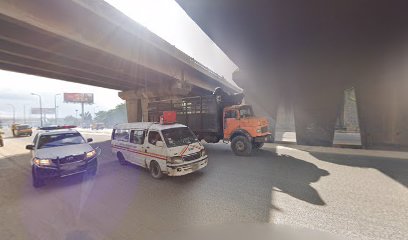
Lady Chubby'S Stores
Experience the heart of Onitsha at Lady Chubby's Stores – your gateway to local goods, culture, and vibrant market life.
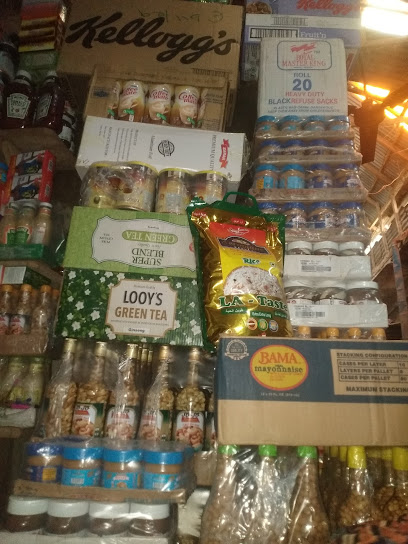
A Virgison Enterprises Nigeria
Explore the vibrant collection of bags at A Virgison Enterprises Nigeria in Onitsha, where style meets quality and local craftsmanship shines.
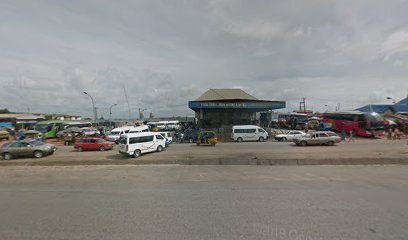
Essential bars & hidden hideouts
Sweet Garden and Events center ltd.
Experience the vibrant nightlife and local flavors at Sweet Garden and Events Center in Onitsha, where every sip and bite tells a story.
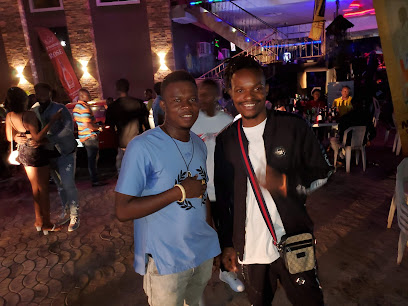
ORINGO LOUNGE & BAR
Discover the vibrant nightlife and culinary delights at Oringo Lounge & Bar in Onitsha, a must-visit destination for travelers seeking local flavor.
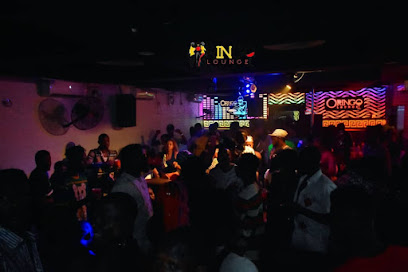
Matrix lounge
Dive into the vibrant nightlife at Matrix Lounge, Nkpor's top bar for cocktails, live music, and a lively atmosphere.
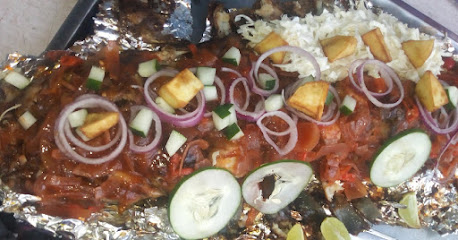
M Lounge And Suites
Discover M Lounge And Suites in Onitsha, a perfect blend of comfort, cuisine, and vibrant local culture in a modern lounge setting.

Sky Garden
Discover the vibrant nightlife at Sky Garden, a premier bar in Onitsha, Anambra, offering delicious cocktails and a lively atmosphere.

Hot Shot Garden
Experience the lively atmosphere and local charm at Hot Shot Garden, the ultimate bar destination in Onitsha, Anambra.
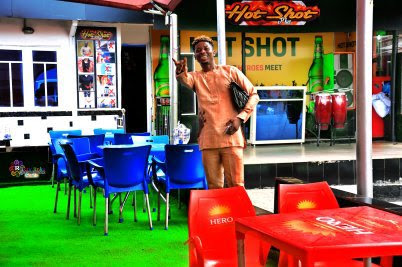
Better Gardens
Experience the vibrant nightlife at Better Gardens in Onitsha, a bar that captures the spirit of local culture with delicious drinks and live entertainment.

Bishop bar
Experience the lively atmosphere of Bishop Bar in Onitsha, where refreshing drinks and friendly service await you.
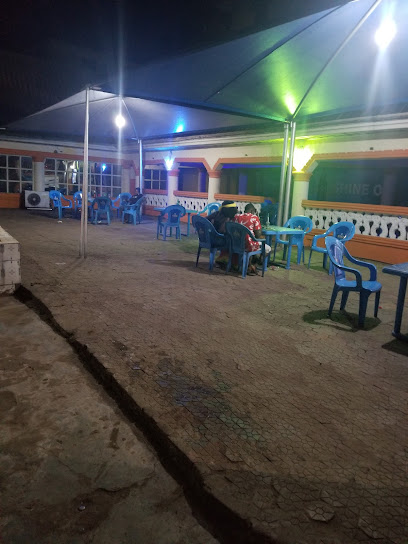
No Limit Car Wash And Bar
Discover a relaxing retreat at No Limit Car Wash And Bar in Onitsha, where vehicle care meets refreshing leisure.

80 Degrees Scubino Bar
Experience the lively nightlife at 80 Degrees Scubino Bar in Onitsha, a vibrant spot for drinks, music, and socializing with locals and tourists alike.
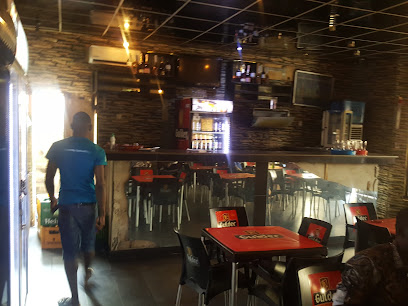
Nonso Bush Bar
Discover the lively ambiance of Nonso Bush Bar in Onitsha, where great drinks and local culture come together for an unforgettable experience.

Remmy Grills & Bar 2
Dive into the lively atmosphere of Remmy Grills & Bar 2, where delicious food and refreshing drinks meet vibrant local culture in Onitsha.
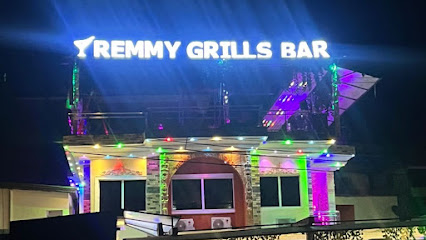
Mac-C Bar and Relaxation Center
Experience the vibrant nightlife of Onitsha at Mac-C Bar and Relaxation Center, where drinks, snacks, and a welcoming atmosphere await.
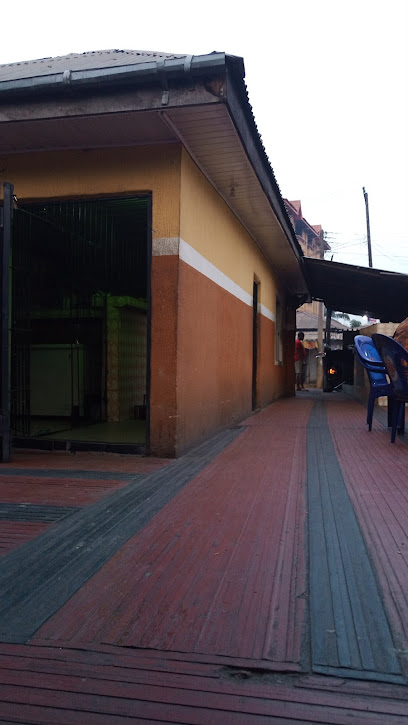
BRISBANE BUSH BAR
Discover the vibrant nightlife and local flavors at Brisbane Bush Bar in Onitsha, Anambra - a must-visit for every traveler!
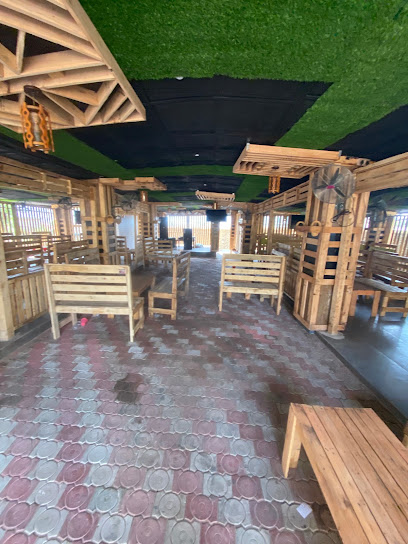
Local Phrases
-
- HelloNdewo
[N-deh-woh] - GoodbyeKachifo
[Kah-chee-foh] - YesEe
[Eh] - NoMba
[Um-bah] - Please/You're welcomeBiko
[Bee-koh] - Thank youDaalu
[Dah-loo] - Excuse me/SorryKedu
[Keh-doo] - How are you?Kedu ka i mere?
[Keh-doo kah ee meh-reh?] - Fine. And you?Olee. Kedu ka i mere?
[Oh-leh. Keh-doo kah ee meh-reh?] - Do you speak English?Onye nwere mmadu ka i gogoro Igbo?
[Ohn-yeh nweh-reh mmah-doo kah ee goh-goh-roh Ee-boh?] - I don't understandAghotara m
[Ah-go-tah-rah m]
- HelloNdewo
-
- I'd like to see the menu, pleaseA ga-eme menu, biko
[Ah gah-eh-meh meh-noo, bee-koh] - I don't eat meatAghotara mkpụrụ ede
[Ah-go-tah-rah m-kpoo-roo eh-deh] - Cheers!Nwanyioma!
[Nwahn-yee-oh-mah] - I would like to pay, pleaseA ga-agbata m, biko
[Ah gah-ah-gbah-tah m, bee-koh]
- I'd like to see the menu, pleaseA ga-eme menu, biko
-
- Help!Nwee m
[N-weh m] - Go away!Gaa n'ulo!
[Gah nah-oo-loh] - Call the Police!Kpọọ Police!
[K-pooh Poh-lee-sheh] - Call a doctor!Kpọọ doctor!
[K-pooh doh-ktoh] - I'm lostA dịghị m
[Ah dee-ghee m] - I'm illA dịghị mmadụ
[Ah dee-ghee mmah-doo]
- Help!Nwee m
-
- I'd like to buy...A ga-ada m...
[Ah gah-ah-dah m...] - I'm just lookingA na-eso-eso
[Ah nah-eh-soh-eh-soh] - How much is it?Ezi ka i bụ?
[Eh-zee kah ee boo?] - That's too expensiveO dịrịrị mmanụ
[Oh dee-ree-ree m-mah-noo] - Can you lower the price?Ka i kpọtụ ike ihe gị?
[Kah ee k-po-too ee-keh ee-heh gee?]
- I'd like to buy...A ga-ada m...
-
- What time is it?Kedụ bụ ebe ihe mere?
[Keh-doo boo eh-beh ee-heh meh-reh?] - It's one o'clockỌkụkọ ndụ
[Oh-koo-koh n-doo] - Half past (10)Mgbe nke iri
[Mm-beh n-keh ee-ree] - MorningUtutu
[Oo-too-too] - AfternoonEhihie
[Eh-hee-heh] - EveningMgbada
[Mm-bah-dah] - YesterdayNkọwa
[N-koh-wah] - TodayTaa
[Tah] - TomorrowAnata
[Ah-nah-tah] - 1Otu
[Oh-too] - 2Abụọ
[Ah-boo-oh] - 3Atọ
[Ah-toh] - 4Anọ
[Ah-noh] - 5Ise
[Ee-seh] - 6Isii
[Ee-see-ee] - 7Asaa
[Ah-sah-ah] - 8Asato
[Ah-sah-toh] - 9Isee
[Ee-seh-eh] - 10Iri
[Ee-ree]
- What time is it?Kedụ bụ ebe ihe mere?
-
- Where's a/the...?Ebee ka...
[Eh-beh kah...] - What's the address?Kedụ bụ adreesị?
[Keh-doo boo ah-dree-see?] - Can you show me (on the map)?Ka i gosi m (na mapụ)?
[Kah ee goh-see m (nah mah-poo)?] - When's the next (bus)?Kedụ ka ọzọ (bọsụ) bụ?
[Keh-doo kah oh-zoh (boh-soo) boo?] - A ticket (to ....)Ọkịchị (nwepụ ....)
[Oh-keeh-chee (n-weh-poo ....)]
- Where's a/the...?Ebee ka...
History of Onitsha
-
Onitsha, located on the eastern bank of the Niger River, has a rich history that dates back several centuries. The city was originally founded by the Igbo people who migrated from the ancient Kingdom of Nri. Onitsha became a prominent settlement due to its strategic location along the Niger River, which facilitated trade and interaction with other communities.
-
In the mid-19th century, Onitsha came under British influence. The city became an important center for British colonial administration and commerce following the establishment of a British consulate in 1857. The construction of a major port and trading post further cemented Onitsha's role as a commercial hub in the region.
-
Onitsha is home to one of the largest markets in West Africa, the Onitsha Main Market. The market has a long history dating back to pre-colonial times and has grown significantly over the years. It serves as a major economic engine for the city, attracting traders and buyers from across Nigeria and beyond.
-
Onitsha is renowned for its vibrant cultural heritage, with numerous festivals celebrated throughout the year. One of the most prominent is the Ofala Festival, which honors the Obi (traditional king) of Onitsha. This festival features elaborate ceremonies, traditional music, dance, and attire, reflecting the rich cultural traditions of the Igbo people.
-
Onitsha has been a center for education in Nigeria, with several notable institutions established over the years. The Dennis Memorial Grammar School, founded in 1925, is one of the oldest secondary schools in the country. The city has continued to be a hub for educational advancement, contributing significantly to the intellectual development of the region.
-
Onitsha played a significant role during the Nigerian Civil War (1967-1970). The city was a focal point of conflict due to its strategic location along the Niger River. Onitsha witnessed several key battles and experienced considerable destruction during the war. The resilience and recovery of the city post-war are testaments to the strength and determination of its people.
-
Today, Onitsha is a bustling metropolis known for its commercial vibrancy and cultural diversity. The city's infrastructure has seen substantial development, with modern amenities and facilities enhancing the quality of life for its residents. Onitsha continues to be a key economic and cultural center in Nigeria, drawing visitors and investors from around the world.
Onitsha Essentials
-
Onitsha is accessible via several means of transportation. The nearest airport is Asaba International Airport, located about 20 kilometers away in the neighboring city of Asaba. From the airport, you can take a taxi or a bus to Onitsha. If you're traveling by road, Onitsha is well-connected by major highways such as the Onitsha-Enugu Expressway and the Onitsha-Owerri Road. There are also regular bus services from major Nigerian cities like Lagos, Abuja, and Port Harcourt.
-
Getting around Onitsha is relatively straightforward. Taxis and motorcycle taxis (locally known as 'Okada') are readily available and affordable. For a more comfortable and safer option, consider using ride-hailing services like Uber and Bolt. Public buses and minibuses (called 'Danfo') operate on fixed routes and are a cheaper alternative. However, they can be crowded and less reliable. Car rentals are also an option if you prefer more control over your travel schedule.
-
The official currency in Nigeria is the Nigerian Naira (NGN). Credit and debit cards are widely accepted in hotels, restaurants, and larger shops, but cash is still king in many smaller establishments and markets. ATMs are plentiful in Onitsha, but it's advisable to carry some cash for convenience. Ensure that your bank cards are enabled for international transactions if you're traveling from abroad.
-
Onitsha is generally a safe destination, but like any major city, it has its share of crime. Areas such as Upper Iweka and Bridgehead Market are known for higher crime rates, particularly targeting tourists. It's advisable to avoid these areas after dark and to stay vigilant in crowded places. Always keep an eye on your belongings and avoid displaying expensive items. Stick to well-lit and populated areas, and consider using reputable taxi services for transportation.
-
In case of an emergency, dial 112 for immediate assistance. Onitsha has several medical facilities, including the Onitsha General Hospital and private clinics, where you can seek medical help. It's recommended to have travel insurance that covers medical emergencies. For minor health issues, pharmacies are widely available throughout the city. The local police station can assist in case of theft or other criminal activities.
-
Fashion: Do dress modestly, especially in conservative areas. Avoid overly revealing clothing. Religion: Respect local customs and religious practices. When visiting places of worship, dress appropriately and remove your shoes if required. Public Transport: Be polite and considerate. Avoid loud conversations and eating on public transport. Greetings: A firm handshake is a common form of greeting. For more formal occasions, a slight bow or nod is appreciated. Eating & Drinking: Do try local dishes and accept food offerings graciously. Avoid using your left hand to eat or give items, as it is considered impolite.
-
To experience Onitsha like a local, visit the Onitsha Main Market, one of the largest markets in West Africa, where you can find anything from textiles to electronics. Engage with locals; they are often very friendly and willing to share insights about the city. Don't miss visiting the Ogbunike Caves, a UNESCO World Heritage site, for a bit of adventure and history. Additionally, try the local cuisine, including dishes like 'Nkwobi' (spicy cow foot) and 'Ofe Onugbu' (bitter leaf soup).
Trending Landmark in Onitsha
-
MR KC STORES LTD
-
Shoprite, Onitsha Mall
-
Onitsha Bridge
-
Dolly Hills Hotel
-
Crunchies Fried Chicken
-
Chillis Fast-food
-
Zik's Mausoleum
-
Godwinononaenyi fabrics store.
-
Ogbunike Cave
-
Saint Mary's Catholic Church
-
Family Play Park
-
Banana Island Hotel and Suites, Awada
-
TRACAS PARK
-
Dennis Memorial Grammar School
-
Gold Rock & Lounge
Nearby Cities to Onitsha
-
Things To Do in Asaba
-
Things To Do in Owerri
-
Things To Do in Enugu
-
Things To Do in Warri
-
Things To Do in Benin City
-
Things To Do in Port Harcourt
-
Things To Do in Uyo
-
Things To Do in Calabar
-
Things To Do in Mamfe
-
Things To Do in Abuja
-
Things To Do in Ibadan
-
Things To Do in Malabo
-
Things To Do in Buea
-
Things To Do in Limbe
-
Things To Do in Luba







